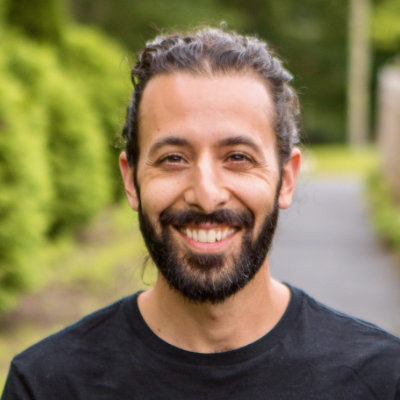Description
This weekly gathering will support and deepen your Dharma practice in a time of global turmoil and destabilization, bringing Buddhist wisdom to the intertwined socioecological crises touching all our lives. Our time together will include guided meditation, teachings, and discussion. We’ll explore the questions: How can the more-than-human world be our teacher? How do we engage Buddhist meditation and nature connection practices to respond skillfully to life in the Anthropocene – the current era in which humans have become the dominant force shaping Earth’s bio-geophysical composition and processes? Where do we find hope?
We will practice shamatha (from the Sanskrit “shama” meaning peace, and “tha” meaning to dwell) meditation to stabilize and clarify the mind, the Seven Homecomings practice to access refuge and guidance, mettā to connect with boundless compassion, and nature-based meditation to open to the wisdom of the earth.
There are no neat and tidy answers to the transitions we are experiencing. We will instead plant our questions in the soil of our practice and wait for insights to unfurl in the openness of our hearts. We’ll aspire to radical openness and discernment as we navigate practice in community— meditating together, sharing in dialogue, and discovering new ways of being with the reality of climate collapse. No prior meditation experience necessary. All identities are warmly welcomed. Participants are expected to maintain a daily meditation practice based on the unfolding guidance throughout the 5 weeks of this course.
No prior meditation experience necessary. All identities are warmly welcomed. Participants are expected to maintain a daily meditation practice based on the unfolding guidance throughout the 5 weeks of this course.

Zac Ispa-Landa (he/him) has studied and practiced meditation for 20 years – primarily Vipassana (insight) meditation and, more recently, Vajrayana practices. His primary teacher is Lama Rod Owens, and his practice is supported by a broad mix of teachings and techniques. He is particularly interested in the role contemplative practices can play in undoing systems of oppression and creating conditions for collective liberation and sustainability. He is a founder and teacher at Burlington Dharma Collective and teaches at Cambridge Insight Meditation Center, Inward Bound Mindfulness, Bhumisparsha, Barre Center for Buddhist Studies, MIT Sloan School, and elsewhere. He’s also a Senior Lecturer in the Rubenstein School of Environment and Natural Resources at the University of Vermont where he teaches courses on ecology, environmental justice, mindfulness, critical reflection and dialogue, and honeybee culture. Zac lives in Vermont with his partner, son, and tens of thousands of honeybees.
Attending an online practice group
- Sitting a practice group from home online differs greatly from coming to a meditation center. Tending to your comfort and giving yourself a quiet, private sitting and walking space (if possible, in your environment) will help keep your attention focused and support your practice and learning. Plan to bring as much simplicity and ease to your day as possible. The schedule of the practice group is structured to support your well-being and practice with regular breaks and time for mindful movement.
- We use Zoom for online practice groups. Before your practice group begins, be sure to download Zoom and familiarize yourself with using the program, including the chat feature. Specifics about how we use Zoom during your practice group will be covered initially; however, we cannot provide technical support during the group.
- We ask that you treat our virtual meditation hall as if we were together in person, in the same room. The teachers and other yogis benefit greatly from your full presence and careful attention.
- Join each session of the practice group a few minutes early. This will support the teachers and your fellow attendees.
- Please maintain noble silence as much as possible for the duration of the practice group and take any necessary steps to limit external distractions such as incoming emails, texts, or other interruptions to maintain the integrity of our practice together. Close all programs on your computer other than Zoom and turn off all notifications on your devices.
- Power off your phones and smartwatches for the entire practice group. Please don’t check your devices during breaks. We suggest you put an “away” message on your email and voicemail and leave your devices in another room during the practice group.
- Please keep your video on during our time together as much as possible. This supports a sense of connectedness and sangha.
- You will receive a welcome email from CIMC a day or two before your program, including the Zoom link, practice group schedule, and further information.
- Practice groups will often have home practices in between sessions.